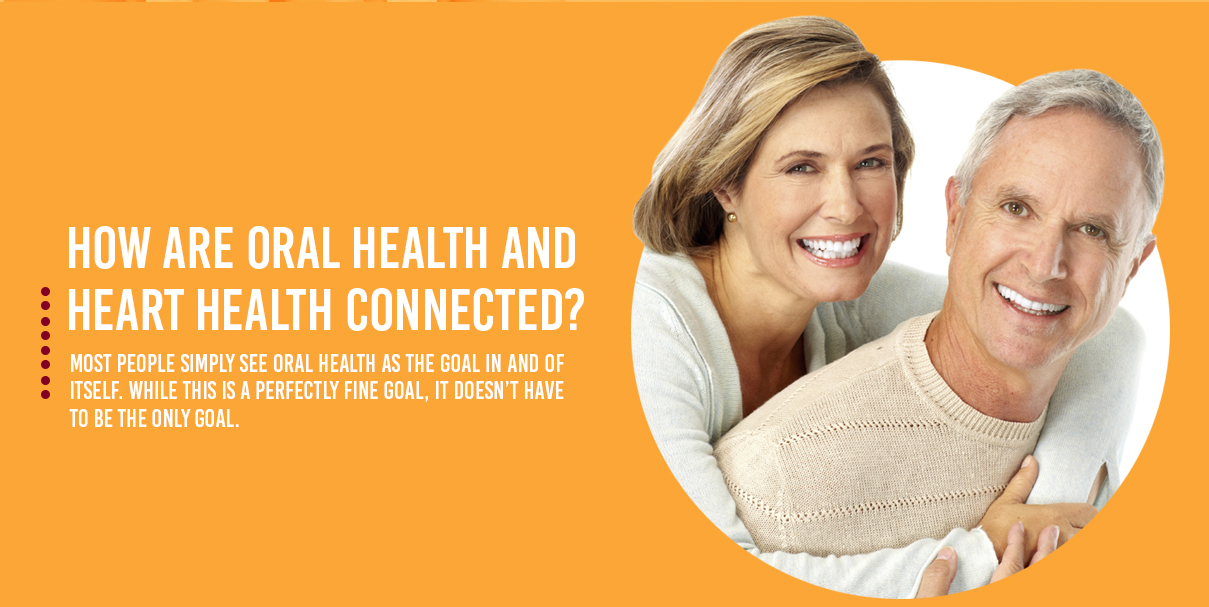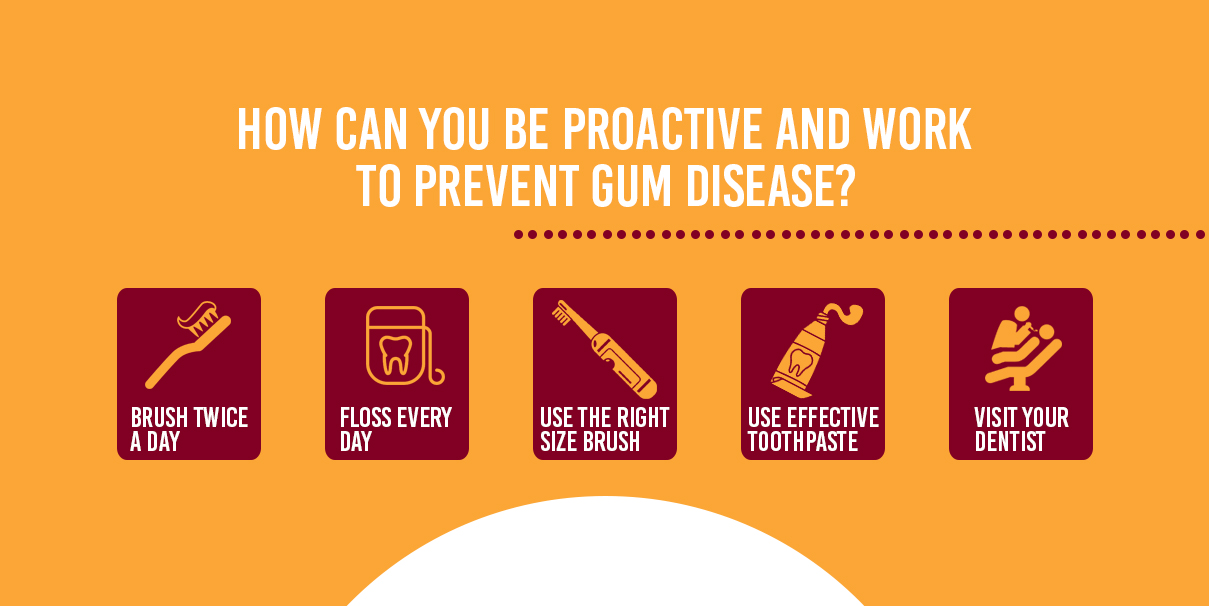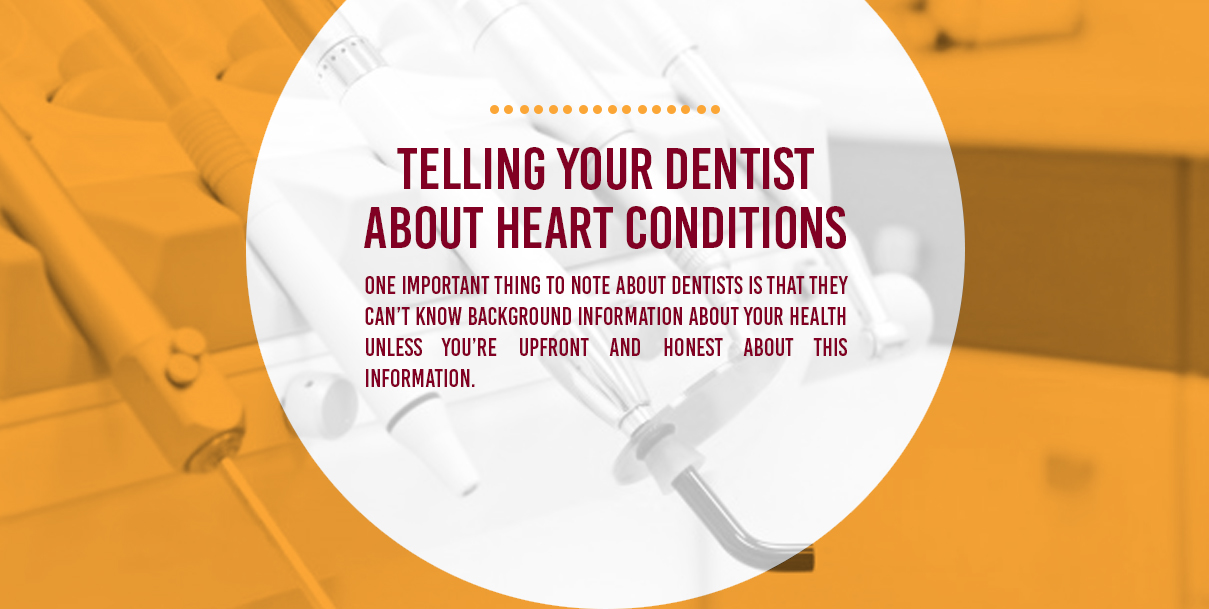It’s no secret that heart disease is a significant problem. It’s still7 the leading cause of death in the United States, causing over 600,000 deaths every year. For many people who have a family history of these types of problems, it can be an even more immediate worry as they wait and wonder if the symptoms will manifest in their own lives.
Many people believe that heart disease, while unfortunate, is also unpreventable, and this is simply not true. While some aspects of heart disease are outside of our control, others are not. There are plenty of steps that all of us can take in our daily lives to help decrease our risk of heart disease. While improved diet and exercise are two of the most popular ways to reduce your risk, they aren’t the only ones. Did you know that by keeping an eye on your oral health, you can also help keep your heart healthy?
Not many people know about the link between heart disease and oral health, and even the ones who are aware don’t usually know much about it. Today, we want to change that by providing you with a guide featuring the basic facts you need to know about the link between gum disease and heart health and more.
Table of Contents
What are the Connections Between Oral Health and Heart Health?
Nowadays, it’s common knowledge that dental care is essential. Most people agree on the benefits of visiting the dentist on a regular basis, and for the most part, we can all agree that having healthy teeth and gums is a good thing. However, most people simply see oral health as the goal in and of itself. While this is a perfectly fine goal, it doesn’t have to be the only goal. By taking care of your teeth and gums, you can also take critical steps towards preventing heart disease.
There are two specific areas where you’ll find an overlap between oral and heart health. The first is a direct causal link between gum disease and heart health. The second is the warning signs for heart disease often found in the mouth.
Let’s look at how these two different areas of overlap in more detail.
Gum Disease and Heart Disease
While gum disease is unpleasant by itself, recent studies hint that this isn’t the only downside of the condition. Evidence indicates that if you have gum disease, particularly gum disease that is at a moderate or advanced stage, you are at a far greater risk for heart disease than you would be otherwise.
This is something for everyone to be aware of, but it’s especially important for those who already have several risk factors for heart disease, such as family history, lack of exercise and poor diet. Adding gum disease on top of other risk factors increases your danger to even greater heights.
1. How Does Gum Disease Affect Your Heart?
At first glance, this connection may seem highly improbable, leaving you wondering how these two distant parts of the body can affect each other so strongly. The explanation is deceptively simple — bacteria from gum disease travels through the bloodstream, eventually making their way to the heart. Once there, these little pieces of bacteria attach themselves to any damaged or unhealthy areas that they can find. This causes inflammation and other complications, as these areas that may simply have been slightly weakened or damaged are now infected with bacteria from the gums.
The result of this type of contamination may be diseases such as endocarditis — an infection that attacks the heart’s inner lining — atherosclerosis or clogged arteries and even a stroke. All of these could potentially result from the bacteria involved in gum disease reaching your heart.
2. Who Can Develop Gum Disease?
While anyone can potentially develop gum disease, certain people are likely to be at a greater risk than others. If any of the following conditions apply to you, you may be at additional risk for gum disease:
- History of oral health issues
- Crooked or crowded teeth that make it difficult to brush and floss properly
- Family history of gum disease
3. What Are Some of the Symptoms of Gum Disease?
While prevention is the best way to take care of yourself, it’s important to also be able to recognize the various signs and symptoms of gum disease. Remember that gum disease poses more of a risk to your heart when the disease is further advanced. By training yourself to recognize the symptoms, you’ll be more likely to catch it early on, allowing you to get treatment before the disease advances far enough to harm your heart.
Here are a few of the most commonly occurring symptoms of gum disease.
- Gums that are swollen, bright red or sore to touch
- Bleeding gums that are painful during eating, flossing or brushing
- Gums that ooze with pus or other marks of infection
- Gums that appear to be receding away from the teeth
- Frequent bad breath or an unpleasant taste in the mouth unrelated to sleeping or eating
- Teeth that feel unexpectedly loose or as thought they’re moving away from other teeth
If you notice one or more of these signs, it’s time to give your dentist a call and schedule an appointment. They’ll be able to give you an official diagnosis, as well as give you tips or medication and treatment to fight the disease.
How Can Your Gums Indicate Heart Disease?
While it might sound like your teeth and gums have nothing but a problematic relationship with your heart, this isn’t true. Your heart can actually greatly benefit from what’s going on in your mouth, as your gums are excellent at predicting whether or not your heart is beginning to develop problems. This unique ability helps many doctors diagnose heart conditions much sooner than they might otherwise be able to.
We’ve already learned that bacteria from your gums can travel down to your heart, creating problems. In this way, your gums are affecting your heart. Similarly, the health of your gums is an excellent indicator of things that might be going on throughout the rest of your body.
Let’s say you go to the dentist. The dentist checks you over and begins to notice that you have some real signs of advanced and severe gum disease. Because of this, they might recommend that another doctor takes a closer look at your heart, to see if any of the problems from your gums might be starting to affect the heart. There’s a possibility that they won’t find anything, but it’s also possible that they uncover the early stages of a heart condition. Without that visit to the dentist, your heart disease might not have been uncovered until much later.
Gum health isn’t quite as simple as a basic test that tells you whether or not your heart is healthy. However, think of it more like an indicator. Gum disease doesn’t mean you absolutely will have a resulting heart condition. It simply means that the possibility is there and should probably be checked out, just to be safe.
How Can You be Proactive and Work to Prevent Gum Disease?
One of the best ways you can work towards preventing heart disease and also maintain gum and tooth health is by taking good care of your mouth. While this may sound obvious, it often seems like such a little thing that we easily forget to do it. The consequences of forgetting might not seem extreme at the time, but if you build a habit of not taking care of your teeth, these patterns will begin to catch up with you.
Try these solutions and see if you can make them part of your daily, weekly, monthly and even yearly routines.
1. Brush Twice a Day
You can certainly brush more if you want to, but most dentists agree that at the bare minimum, you should clean your teeth twice every day. Most people find that it’s easiest to do this when you first get up in the morning and right before you go to bed at night. Other people may prefer to do this after meals, or even after a shower. Whatever you choose, find a routine and a rhythm that works for you and stick to it.
2. Floss Every Day
Again, you’re always welcome to floss more than this, but at the very least, you should make an effort to practice this habit on a daily basis. One excellent way to do this is to include flossing directly after you brush your teeth in the evening. This way, you’re cleaning any small pieces of food that managed to lodge themselves between your teeth during the day and going to bed with clean, healthy teeth.
3. Use the Right Size Brush
While brushing twice a day is always an excellent idea, it’s also possible that even if you are completing these brushings, you still aren’t getting your teeth clean. For your brushing to be as effective as possible, you want to be using a soft-bristled brush that fits in your mouth comfortably and can reach every tooth, even the molars in the far back. If you have a small mouth, for instance, don’t be afraid to use a brush intended for children if this will help you clean your teeth better.
4. Use Effective Toothpaste
With so many brands of toothpaste out there, it can be hard to know which kind to choose. Ultimately, there are many good choices, and you won’t go wrong if you select any ADA-accepted toothpaste. If your toothpaste does not have this certification, however, consider switching to a brand that does.
5. Visit Your Dentist
The importance of your twice-yearly visit to the dentist cannot be overstated. A dentist will use their professional tools to clean out any plaque that you couldn’t reach yourself, and they’ll also use more advanced techniques to give you a thorough cleaning that’ll set you on the right path for the next six months.
The Importance of Visiting Your Dentist on a Regular Basis
In an ideal world, you should visit your dentist twice a year, as we just mentioned. For all too many of us, however, this becomes a task that we simply push off and tell ourselves, “I’ll get to that soon, but I’m just too busy now.” If this is a rut you find yourself stuck in, think of all the benefits you’re missing.
1. Professional Cleaning
There’s only so much cleaning you can do yourself. For all the rest, you’ll want the help of a dentist and their professional tools. They’ll be able to get the hard-to-reach places and scrape off any plaque that’s built up since your last visit. The longer you wait between visits, the more this plaque can build up and cause damage.
2. Early Disease Detection
Dentists are trained to see the signs of gum disease, even in its early stages. If you’re beginning to exhibit symptoms, a dentist will very likely notice and recommend treatment. If you aren’t visiting a dentist, however, the likelihood increases that these signs will go unnoticed, leading to more advanced gum disease and potential heart disease.
3. Advice and Good Habits
It’s far easier to get out of the rhythm of good habits if you don’t have someone to encourage you in them. Even though you only see a dentist twice a year, they can do a good job of supporting you along these lines. Furthermore, they may have excellent advice to offer about how you can improve your oral hygiene and establish good habits.
Telling Your Dentist About Heart Conditions
One important thing to note about dentists is that they can’t know background information about your health unless you’re upfront and honest about this information. This means you’ll need to share this information with them or risk experiencing complications.
Pacemakers, in particular, are one item you’ll need to talk to your dentist about. While pacemakers and oral health might initially seem unrelated, there are proven correlations between the two. Pacemakers and other similar devices operate by sending electronic pulses to your heart to keep it beating in a regular rhythm, meaning that many of a dentist’s ordinary tools can pose a problem. Certain cleaning systems or ultrasonic tools can potentially interrupt these electronic signals, thus disrupting your pacemaker.
If you have a pacemaker or other device, be sure to tell your dentist about it, as this may affect the tools and procedures they use to treat you.
Visit Yuma Dental for Your Checkup Today
Has it been a while since you’ve visited a dentist? Are you looking for a new dentist in or around Yuma, Ariz? We hope you’ll join our practice here at Yuma Dental. We welcome all patients, from children to the elderly and everyone in between, and pride ourselves on providing them all with the same friendly and caring service. Whether you’re looking for regular preventative care, emergency treatments, extracts, crowns, implants, teeth whitening or many other procedures, we can deliver.
Schedule your appointment online today or give us a call at 928-344-5700 to get started today.
















